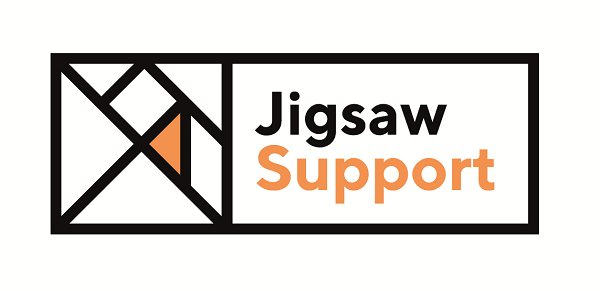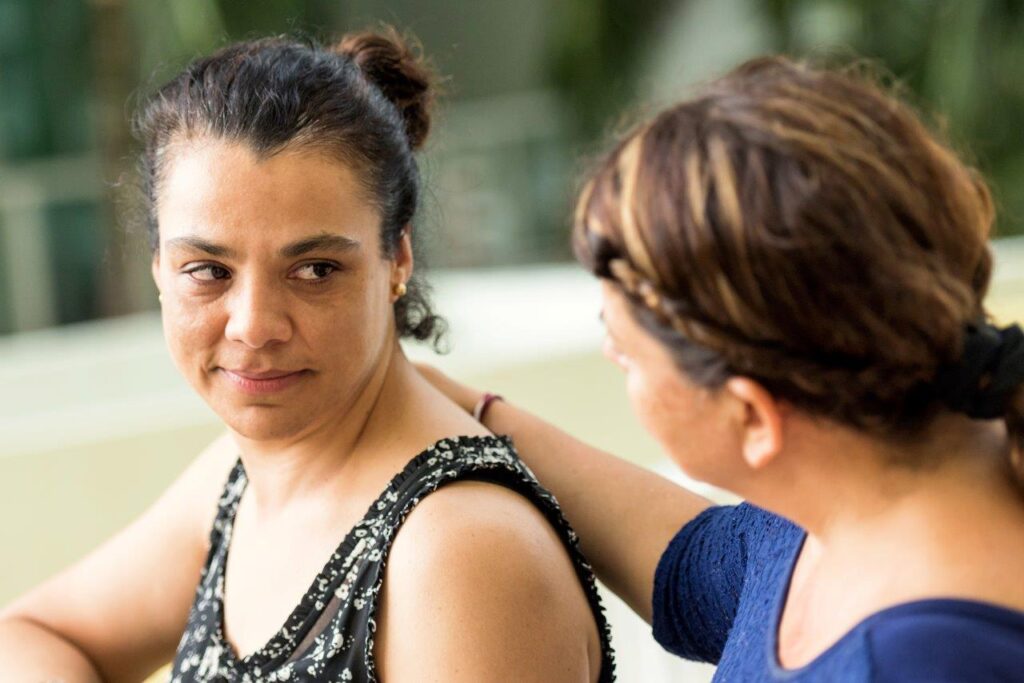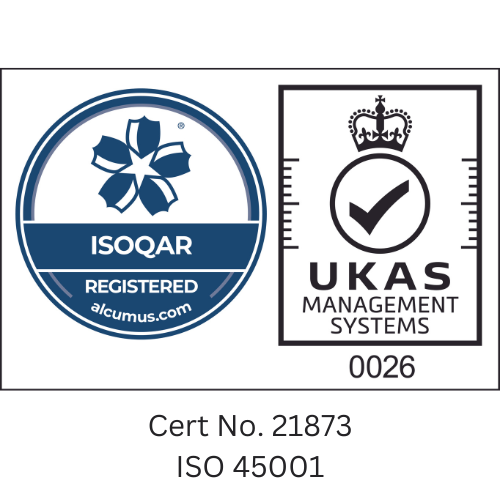Jigsaw Group’s Domestic Abuse policy outlines our general approach to addressing domestic abuse in a comprehensive, clear, and accessible manner.
You can access our full Domestic Abuse policy here →
This policy applies to all staff including senior managers, board members, paid employees, volunteers, agency staff, trainers, students, or anyone carrying out work on behalf of the Jigsaw Homes Group.
This policy sets out how we will deal with domestic abuse that affects our customers or their families and how we will assist survivors of domestic abuse. It also sets out the action we will consider taking against perpetrators of domestic abuse. This policy applies to all our customers and those living with them.
Jigsaw Homes Group recognises that women and girls are disproportionately affected by domestic abuse. However, we also acknowledge that domestic abuse is not exclusive to women and girls, it can affect anyone, including men and individuals of all gender identities.
Our approach, as outlined in this policy, is designed to support all victims and survivors of domestic abuse equally, ensuring that everyone has access to appropriate protection, support, and resources. We will meet our statutory safeguarding requirements in line with our existing policies and procedures where there are safeguarding concerns about a vulnerable resident or customer.
We will:
- Provide appropriate support, advice, and guidance to anyone experiencing domestic abuse.
- Attempt to identify survivors at the earliest stages and will safely ask about any history of domestic abuse at the lettings interview. If a history is disclosed, additional security measures will be considered and any other support requirements explored.
- Enable residents to report domestic abuse to us in different ways, including in person, in writing, by telephone, online or via a third party such as a police officer or IDVA (Independent Domestic Violence Advocate).
- Ensure that survivors know that they can meet staff in confidence at our offices or at an agreed place of safety of their choice.
- Specialist teams in Neighbourhoods and Contracted Services will carry out a risk assessment (using the Domestic Abuse, Stalking and ‘Honour’‐ based violence (DASH) Risk Identification Checklist) (where this has not already been completed by another agency) and safety planning to provide support for the survivor and their children, who would be recognised as being victims of DA themselves if witness to or subject to abuse.
- Share information with Multi Agency Risk Assessment Conferences (MARAC). We are participants in MARACs where information is shared between agencies involved in domestic abuse cases. Multi‐Agency action plans are developed in response to high‐risk cases. Where cases meet the MARAC risk rating threshold or if we have child protection concerns, we have a legal duty to share this with agencies. In cases where the threshold is not met, with the agreement of the survivor, we will make referrals for other support from relevant agencies. Agree an action plan with the survivor, monitor the situation and review at a frequency agreed with them.
- Provide improved security to a survivor’s home (e.g., security lights, window locks) where a need is identified.
- Encourage people experiencing domestic abuse to access appropriate services as early as possible and give advice to allow them to make choices about what to do next.
- Support survivors to rebuild their lives by working in partnership with them and other support agencies.
- Ensure that when we rehouse survivors of domestic abuse, they do not lose a secure lifetime or assured tenancy.
- Ensure that where children and young people are affected by domestic abuse, they too have access to services as early as possible
- We will support Black and minoritised victims/survivors and those with protected characteristics to access information and support both within Jigsaw and through specialist services.
Jigsaw Homes adopts the definition of domestic abuse outlined by the Home Office which makes clear any behaviour of a person (“A”) towards another person (“B”) is “domestic abuse” if:
(a) A and B are each aged 16 or over and are personally connected to each other, and
(b) the behaviour is abusive.
This definition ‘personally connected’ ensures that domestic abuse protections apply not only to current partners but also to:
- Ex‐partners
- Family members
- Co‐parents
- Those in non‐marital intimate relationships.
It also clarifies that cohabitation is not required as abuse can occur even if the individuals live separately.
Responding to a Report of Domestic Abuse
Concerns about or reports of domestic abuse could be reported to any member of Jigsaw Homes staff, or a contractor/agent. It is the recipient’s responsibility to ensure that information is logged properly, and a concern raised as stated within our DA Procedure.
When a member of Jigsaw staff suspects or witnesses domestic abuse taking place in our homes or neighbourhoods, they must refer it as a concern and ring the police if there is a current threat to any individual. We will provide clear guidance and training for all relevant staff on how to be alert to the symptoms and signs of domestic abuse and how to report their concerns. Our contractors and agents will also be required to be alert to the symptoms and signs of domestic abuse and report them to Jigsaw Homes.
On receiving a report of domestic abuse directly from a survivor, an interview with the survivor will be attempted within 24 hours (same‐sex interviews will be facilitated where requested). Where this is not possible due to the weekend, or a bank holiday, the person will be referred to a relevant support agency or interviewed on the next available working day. Where a report of domestic abuse is received via a professional third party e.g., a police officer, we will seek to establish from the third party what details have been taken from the survivor, what support is in place and what is required from us. Where required, we will then contact the survivor directly and offer an interview as above.
We will ensure that the survivor is aware of referrals that will be made on their behalf from the beginning of the process and seek agreement from them to any referrals.
Addressing the Concern
Concerns will be processed as a safeguarding case and allocated to the Neighbourhood Safety team and/or Jigsaw Support Team, where applicable who, following the initial interview will determine if sufficient support is in place and if it is necessary to keep the case open within Jigsaw Homes.
All interviews and actions will be recorded using either the REACT or Ecco (Jigsaw Support) recording system.
Carrying out Initial Interview:
- Interviews will be carried out in a sensitive and supportive manner
- Immediate housing options and tenancy rights will be discussed
- Contact with the police and medical services will be discussed
- A DASH Risk Identification Checklist will be completed, where required
- A referral to MARAC will be made if the threshold is met
- Advice on support available will be given (National Centre for Domestic Violence, Women’s Aid, Citizens Advice Bureau etc.)
At the end of this interview, the officer should agree with the survivor what action will be taken.
Further Action:
The officer dealing with the case will ensure that contact is maintained with the survivor until they feel that support from Jigsaw Homes is no longer necessary, as they will be fully supported by an IDVA team or another agency. Further contact with them may need to include discussion on issues such as: ‐
- Local IDVA Service
- Contacting the police if not already done so
- Longer term housing options
- Advice on welfare benefits
- Legal action to be taken against the perpetrator
- Re‐housing options
- Referral to Women’s Aid
Where possible, we will assist and support the survivors to enable them to remain in their home. In some cases, however, the survivor may feel unable to return to their home, either in the immediate or long term. An example could be if the perpetrator remains in the property or in the locality of the property. We have limited provision for emergency or temporary housing. If the survivor cannot return home and has nowhere else to stay, advice will be offered regarding options for rehousing with the local authority or other agency.
For moves outside the local authority the Lettings and Tenancy Officer will advise the following of the move: ‐
- Domestic abuse lead for the local authority
- Public Protection Investigation Unit (PPIU)
- New housing provider
If the survivor is the sole tenant, consideration will be given to a rehousing request. The appropriate officer will decide whether the request will qualify as a management move.
Where a management move is offered to a survivor, this will normally be on a ‘like for like’ basis and where possible, depending on the wishes of the survivor, away from their local area dependent on risk and the views of the local IDVA service. This includes a commitment to offering the same level of tenure to any individual fleeing domestic violence, whether that is an existing tenant or someone coming to Jigsaw Homes Group. All survivors of domestic abuse will be given priority for rehousing.
We will aim to provide on‐going support to survivors of domestic abuse whilst required, by ensuring that contact is maintained and by ensuring that the survivor is referred to other specialist agencies that can provide support.
Legal Action Against the Perpetrator
The Housing Act 1996 created the power for housing associations to evict a perpetrator of domestic abuse, whether they are a joint or sole tenant of the property.
This option will usually be considered where the survivor (and his/her dependents) has left the property, and the perpetrator remains in a property. Consideration also needs to be given to the likely success of the action based on what evidence is available.
The option to evict a perpetrator will be discussed with the survivor, and they will be reassured of necessary support from the company or other agencies.
Approval to seek a possession order should be sought from the Operational Director of Neighbourhoods and considerations such as under‐occupation or the perpetrator’s possible vulnerability will be considered. Injunctions against the perpetrator can be sought by the survivor and the Company on their behalf. In cases of domestic abuse, an injunction would normally involve the perpetrator not being allowed to come into the locality of the survivor’s home.
Damage to and Security of the Property
We will consider arranging and paying for additional security of a property so that a domestic abuse survivor feels safe to return. This may include items such as lock changes or additional door or window locks.
Where the police wish to install additional security, permission will be given immediately subject to the agreement on who will maintain such items.
In cases where the property has been damaged by a perpetrator of domestic abuse, repairs will be carried out by the company in line with the repairs policy.
Where appropriate, the company may seek to take direct action against the perpetrator and report the damage to the police as a crime.
Multi Agency Approach
We acknowledge that dealing with issues of Domestic Abuse requires a multi‐agency approach and will endeavour to work with any appropriate local agencies in individual cases to ensure cases are dealt with in the most effective and efficient way.
We will actively engage in good practice when dealing with domestic abuse, such as making referrals to MARACs (Multi Agency Risk Assessment Conferences) and following
any recommendations or action plans that may arise from them.
Training
As part of our commitment to safeguarding, domestic abuse awareness training will be mandatory for all Jigsaw Homes staff.
We will ensure all front‐line officers receive training in relation to domestic abuse, how to spot the signs of potential domestic abuse, and how to escalate their concerns.
We will train our staff who deal with rents and financial advice, to spot the signs of economic and financial abuse, and to support survivors where this abuse has been identified.
Staff training will include our approach to dealing with reported perpetrators of domestic abuse.
We will ensure that those officers dealing directly with domestic abuse survivors are appropriately trained and resourced so that they can deal with reports confidently and competently. We will ensure that these staff members also have the option of one‐to‐one support on a regular basis to monitor their own wellbeing.
Training will be reviewed and relaunched with any changes in legislation.
Safeguarding
A considerable number of adults who are referred as a safeguarding case are often experiencing domestic abuse in some form. Despite the overlap between supporting abuse survivors and safeguarding adults, the two have developed separate professional practices.
If domestic abuse is an isolated issue and there are no other safeguarding concerns, then support can be sought via forums such as MARAC (Multi Agency Risk Assessment
Conference).
If, however, there is more than one safeguarding issue present, such as domestic abuse in addition to physical or mental health issues then a referral should be made to the Local Authority Safeguarding team so that services can be coordinated to deal with the potentially complex issues.
We recognise the devastating impact that domestic abuse can have on children exposed to it in their own home. Part 1 of the new Domestic Abuse Act provides that a child who sees, hears, or experiences the effects of domestic abuse and is related to the person being abused or the perpetrator, is also to be regarded as a survivor of domestic abuse.
This means that in domestic abuse cases where children are present, practitioners have a duty to involve Children’s Services to ensure any children are adequately safeguarded.
Operatives in all roles identifying signs of abuse in children and adults will raise their concerns to the Neighbourhood Safety Team who will refer to statutory services to safeguard their emotional and physical safety.
Raising Awareness
We will publish our domestic abuse policy and promote awareness of the services available to our customers through regular communication campaigns, highlighting the theme and what Jigsaw does to address the risks, ensuring that these are easily accessible to residents and staff.
Caring for Our Employees
Jigsaw Homes has clear policies in place in relation to the welfare of employees and wholeheartedly supports employees who may be experiencing domestic abuse. We will offer flexible working arrangements and paid leave for employees affected by domestic abuse, along with clear referral pathways to internal and external support. A separate Policy for colleagues is available. Any employee who requires support can contact their line manager or a member of the People team.
Confidentiality/Data Sharing
We recognise that incidents of domestic abuse are extremely sensitive, private incidents for survivors to report and will endeavour to deal with such cases confidentially where possible.
We may however share relevant information with local agencies such as the police, to deal with cases more effectively by either gathering extra evidence to carry out enforcement measures against the perpetrator or sharing information in the interests of the survivor and/or their dependents to provide better or more effective support.
The Data Protection Act 2018 includes ‘safeguarding of children and individuals at risk’ as a condition that allows practitioners to share information without consent.
Information can be shared legally without consent, if any individual is unable to, cannot be expected to gain consent from the individual, or if gaining consent could place a child at risk.
Relevant personal information can be shared lawfully if it is to keep a child or individual at risk safe from neglect or physical, emotional, or mental harm, or if it is protecting their physical, mental, or emotional well‐being.
Intersectional & Anti‐Racist Practice
When dealing with survivors of domestic abuse, we will ensure we take an intersectional approach. We will consider a collection of factors that would affect an individual in combination rather than in isolation. An example of these factors includes gender, sex, ethnicity, class, sexuality, religion, disability, weight, and physical appearance. We are aware that these intersecting and overlapping social identities may be both empowering and discriminating.
As an organisation we recognise the impact of the intersecting inequalities which, according to research by Women’s Aid specifically leave Black and Minoritised women more likely to experience violence and less able to access support, attention, and justice. We ensure that our practice challenges and addresses racism across our organisation.
Domestic abuse would be considered a safeguarding concern and as such would be monitored in line with the safeguarding policy.
The safeguarding lead will be responsible for monitoring effective and consistent implementation of the safeguarding policy and associated procedures across the Group. This can include internal audits and will foster principles of continuous improvement, and the analysis of satisfaction returns from customers accessing our services. The safeguarding lead will produce a quarterly report via our internal monitoring dashboard.
We will identify and address barriers that prevent survivors from accessing support, such as language barriers and lack of culturally appropriate services.
This policy and associated procedures and guidance will be reviewed every two years or sooner if there are significant changes to legislation, regulatory changes, national policy changes, or there is an operational need to do so. Any amendments will be appropriately consulted on and signed off and clearly communicated to the wider Jigsaw Group staff as well as our tenants and residents.
At Jigsaw we are committed to the DAHA values and principles of:
Values
- Integrity
- Collaboration
- Empathy
- Empowerment
- Respect
- Accountability
Principles
- Non‐judgement and belief
- Being person centred
- Amplifying victim/survivor Voice
- Victim/survivor safety
- Working towards a Coordinated Community Response


